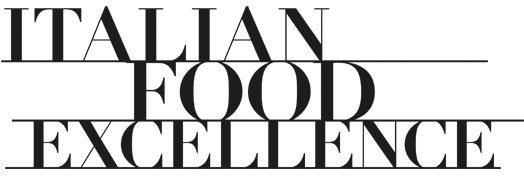Fifty-two new simple programmes and nine multiple ones were approved by the European Commission and will be co-financed through the Common Agricultural Policy budget. Only three of them come from Italian proponent bodies.
These projects concern promotion and information about the EU agri-food products, aimed at communicating the quality of products grown in the Union, as well as characteristics of the specific production methods, based on EU Regulation 1144 / 2014 and the Work Program 2017, in both member Countries and in non EU Countries. The ultimate goal is to help EU agri-food producers develop new markets and increase consumption level, market share, and competitiveness.
In October, the Commission published on CHAFEA (Consumers, Health, Agriculture and Food Executive Agency) website the list of simple programmes that were approved and statistics concerning received proposals, while the list of multiple selected programs will be disclosed only after signing the contracts (scheduled within January 2018). All approved programs will become operational since January 1st 2018, in any case after signing the contracts, and they will be in force for two or three years (by regulation, the shares can last 12, 24, or 36 months, but none of the selected ones has an annual duration).
Statistics
At the end of 2017 Call, that is to say April 20th, 189 simple projects (-5% compared to 2016) were submitted, for a total of € 306.4 million of funding required on a total available of € 85.5 million, and 35 multiple projects (+ 30% compared to 2016), for a total of € 132.1 million required on a total available of € 43 million. 52 simple projects were approved, that is to say 28% of the presented ones, and 9 multiple projects, equal to 26%. In the course of the evaluation, many projects did not succeed in reaching the minimum score and a comparatively high number of projects were considered ineligible. Nevertheless, 307 e-mails were addressed to CHAFEA Help Desk and 57 calls concerned clarification requests. In particular, most e-mails came from Italy (81), followed by Belgium (39), Spain (36), Greece (28), and France (16).
CALL 2017 SIMPLE PROGRAMMES MULTIPLE PROGRAMMES
Status of proposals # % # %
Accepted 52 28% 9 29%
Reserve list 9 5% 8 23%
Refused 101 53% 9 26%
Ineligible/ inadmissible 27 14% 9 26%
Total presented proposals 189 100% 35 100%
A) Simple Projects
Examining the proposals according to the Member States, it emerges that the most active Countries were Italy with 36 requests, Greece with 30, France with 23, and Spain with 10, while Estonia, Finland, Luxembourg, Malta, and Slovakia did not submit any project. However, the prospectus below shows that, in spite of the many requests submitted by Italy and Greece, the result was definitely disappointing for these Countries, with 3 and 4 projects approved respectively, for absolutely modest amounts. The Countries with the best results in terms of projects admitted for funding are France (17) and Spain (10), which together accounted for 65% of the total budget allocated by the Union. As for products, the prospectus below shows that the projects submitted mainly concerned a multi-product basket (62), followed by fresh and processed fruit and vegetables (35), various meats and meat products (27), and dairy products (26). On the other hand, the products concerning the approved programmes, in order of entity of funding, are dairy products (23.7%), multiproduct basket (20.2%), olive oil (16.8%), fresh and processed fruit and vegetables (13, 4%), with the other ones below the incidence threshold of 10% on the total available budget.
Reflections
It is disconcerting to observe that just the main competitors of Italy - that is to say France, Spain, and Greece - had the best performances and therefore for the next three years they will have a total contribution of nearly 65 million Euros to promote their agri-food specialities industry in the world. And it is also disconcerting to observe that our Country, leader in the EU as for number of protected agri-food products with the system of PDO, PGI, and STG, as well as pioneer and leader in organic production and the only one to be equipped with a National Integrated Production Quality System, obtained such a modest result, although EU Regulation 1144/2014 goes just in the direction of strengthening protected quality, organic production, and sustainability schemes.
The high number of simple programmes presented by Italian companies (36), as well as the modest number of multiple programmes (4), should make Italians think, as they are perhaps indicative of poor aggregation and networking capabilities. The analysis of French proposers of the selected programmes about which we discussed above, too, as well as those of the Belgian proponents (4 out of 4 approved projects were proposed by Flanders' Agricultural Marketing Board), deserves careful thought; Italian proposals, with a very few exceptions, were submitted by individual producers association as well as by OP and AOP, that is to say structures that often have no appreciable size, both in terms of members and value of marketed production, and surely they can set up less articulated and impacting strategies and actions than those presented by national level organizations.
Last November 15th, the Committee for Agriculture and Rural Development adopted the 2018 Annual Work Programme concerning the promotion of agricultural and food products, on the basis of EU Reg. 1144/2014. The budget for co-financing promotion actions was considerably increased, from € 133 million in 2017 to € 179.1 million available for programmes to be selected in 2018 (+ 34.7%), whose duration can go from 12 to 36 months. It is important to note that, as in the previous two years, some of the funds allocated for the actions to be selected in 2018 are targeted at particular sectors:
1) Sustainable sheep / goat meat to try to counteract the impact of the ongoing difficulties the market is experiencing and 2) campaigns aimed at increasing the consumption of fruit and vegetables in the EU as part of the promotion of healthy nutrition.
